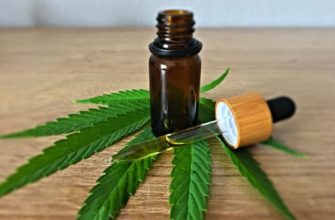- Why does CBD seem like the “solution of the century” for sleep disorders?
- How CBD Treats Sleep Disorders
- What is the roleCBD in the Prevention of Sleep Disorders
- Insomnia Treatment – Insomnia
- Insomnia accompanying epilepsy
- The Link Between Anxiety and Sleep and How CBD is Treated
- Treatment of sleep disorders caused by chronic pain
- CBD and Treatment for Sleep Problems Due to THC Use
Preventing sleep disorders: Regardless of the quality and average duration of sleep per person, one thing is clear: Constant sleep deprivation can have devastating consequences for the human body, its mental and physical health. Thousands of life-threatening human errors occur every day due to lack of adequate sleep. However, these disorders are associated not only with dangerous extreme situations, but also our emotional world, the mental ability to “get through the day” in difficulties and difficulties at work, learning and relationship management skills – Sleep and lack of sleep affect a lot in life.
People with insomnia experience a variety of ways to alleviate the problem, ranging from sleeping pills, exercise, optimal nutrition, yoga and meditation, or complementary medical treatments.
The fact that problems with regularity, health and quality of sleep have become a real epidemic over the past fifty years,
Indicates that all of the above solutions cause the following effects:
- The development of dependence and tolerance of the body mainly to solutions of sedatives based on opioids, etc.
- These solutions have a wide range of serious side effects that do not prompt consumers to start treatment.
- Sometimes these solutions alleviate the problem a little, but they are simply not effective enough.
Why does CBD seem like the “solution of the century” for sleep disorders?
Sleep and the endocannabinoid system:
Our body produces endocannabinoids through the endocannabinoid system, a system that helps maintain balance in the nervous transport system (homeostasis). Today, scientists are proving that there are situations where the body stops producing enough endocannabinoids and it “needs” or – external sources such as cannabinoids from the hemp plant (cannabis) can be used. Many studies have already shown that Using CBD Achieves more sleep cycles than not using it.
Researchers have begun testing the medical potential of CBD in the context of many sleep disorders, such as:
- Waking sleep and anesthesia during the day.
- Obstructive sleep apnea.
- Rapid eye movement (REM).
- Nightmares due to post-traumatic stress disorder (PTSD) and deterioration in sleep quality and timing due to chronic pain.
In addition to the importance of light and quick anesthesia, sleep itself, its quality and duration are equally important. Since CBD stimulates the entire endocannabinoid system, it can regulate the way you sleep, This allows for continuous and long sleep cycles.
How CBD Treats Sleep Disorders
In recent decades, the idea of being a neural messenger has been tested. Adenosine It plays an important role in monitoring the body’s sleep mechanism. Many studies have shown that adenosine agonists relieve anesthesia and adenosine antagonists stimulate and make anesthesia difficult. The neurotransmitters adenosine and thymidine are released from nerve cells in the brain, bind to corresponding receptors in other nerve cells, and thus activate the natural mechanisms of sleep and sleep.
What is the role CBD in the Prevention of Sleep Disorders
CBD attracts / binds receptor-bound adenosine molecules, removes it from the synaptic space, allowing new adenosine molecules to bind, enhance sleep and sleep. This increases the activity of adenosine and enhances its effect on sleep. Anesthesia is light and quick, there is no insomnia and quick awakening, with a feeling of “charging the batteries” – as it should be for a good sleep. Dozens of studies point to a link between CBD and improving and treating sleep problems, and for many people this means quitting addictive sleeping pills with serious side effects that impair function and alertness the next day.
Press here For purchasing additional oils and CBD products
Insomnia Treatment – Insomnia
Long-term insomnia can result from exposure to a number of medical factors and psychiatrists, inappropriate sleep, the intake of stimulants, or various biological factors (allergies). Insomnia develops in many people who are under severe mental stress, anxiety, or in the midst of traumatic events. CBD’s well-known anti-anxiety ability may benefit people with insomnia. Many report a feeling of calmness that CBD induces that can be felt throughout the body.
Whether it’s insomnia caused by allergies, hormonal problems, various neurological conditions, or chronic pain, cannabidiol can play an important role in the path to a long-term solution. * for further reading: Research link
Insomnia accompanying epilepsy
In a preliminary study conducted between 1980 and 1972 in the United States, CBD and placebo were given to 15 volunteers with epilepsy and chronic insomnia. 7 out of 8 subjects who received CBD reported Significant improvement in the quality and duration of sleep Compared to the placebo group, which showed no improvement at all.
Research link
The Link Between Anxiety and Sleep and How CBD is Treated
In the Western world, anxiety is considered a multisystem physical and mental disorder that affects the lives of millions of people. Anxiety, which manifests itself as a disease for everything, causes a defect in many components of patients’ lives, such as interpersonal contact and social relationships, performing professional tasks at work, and a regular sleep cycle. Anxiety can cause a constant feeling of fatigue that replaces sleep, and when sleep does not “fill the batteries” or “drain waste” – in any case, the level of anxiety and high mental stress increases. And so on in an endless circle.
CBD helps regulate the endocannabinoid system, but it is also active and plays an important role in maintaining the nervous system:
It prevents the elimination of adenosine, an anesthetic neurotransmitter, and also protects these cells of the nervous system. All of this makes CBD a great potential for treating anxiety and therefore restoring sleep mechanisms to their optimal state.
for further reading.
Treatment of sleep disorders caused by chronic pain
Research in recent years has continued to uncover a link between CBD consumption and chronic pain relief. The anti-inflammatory property of CBD has also been linked to pain relief. In many cases, insomnia is a chronic pain that disrupts uninterrupted sleep and turns nights into a restless and debilitating awakening. CBD will ease pain and inflammation if provided.
This will give the body’s systems the ability to balance and recharge batteries during sleep. Many CBD consumers who have started using because of chronic pain of all types and intensity of pain have reported an improvement in their sleep cycle as a result of use. Why not work and vice versa?
CBD and Treatment for Sleep Problems Due to THC Use
Many cannabis users are aware of the sedative effects sometimes caused by recreational marijuana use. This phenomenon keeps some people from using cannabis, of course, not for everyday use. Over time, the varieties of marijuana have been “divided” into two main ones: “stimulating” and “sedative”.
Stimulating strains were recommended for use in the morning and afternoon, and calming strains in the evening and before bedtime. Soothing “varieties” are known today to be CBD-rich varieties.
Helpful information:
Since CBD acts on the sleep mechanism in general, it is not the usual type of “sleeping pill” that works almost immediately and expires after a certain amount of time. Numerous anecdotal evidence suggests that CBD only begins to affect sleep patterns after a few days of continuous use and regular intake. There are many reports of people whose sleep has improved as a result of using CBD, but they do not take it before bed, but in the morning or during the day!









